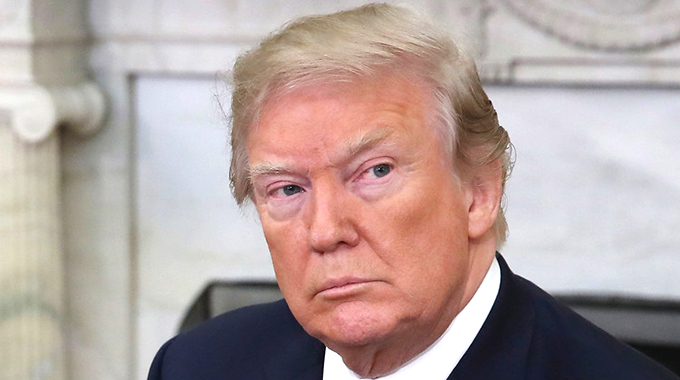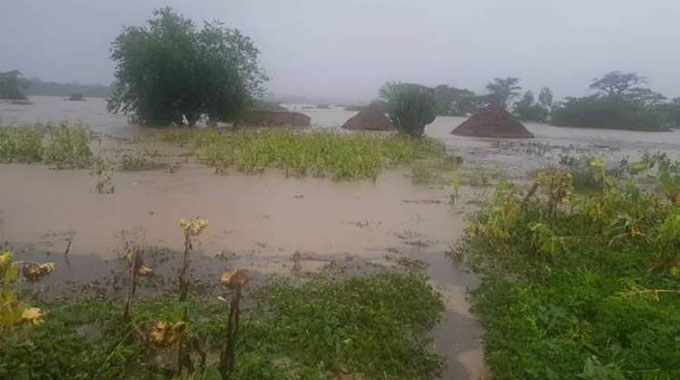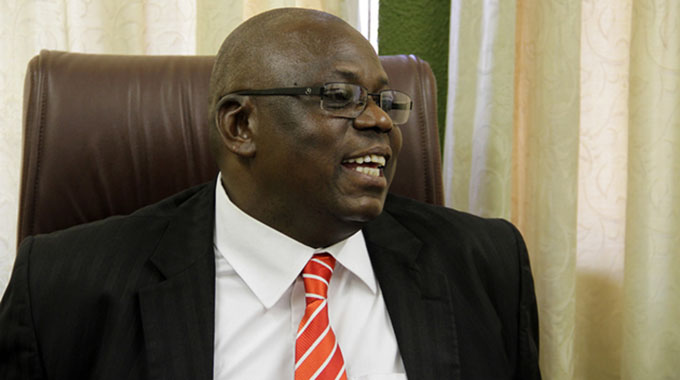Cyclone Idai: US double standards sickening

Philemon Mutedzi Correspondent
The humanitarian assistance that is being unveiled by the United States and the European Union to Zimbabwe to mitigate the effects of Cyclone Idai is welcome.
The assistance will go a long way in alleviating the plight of our brothers and sisters, who are either injured, dead, bereaved or marooned. It is all good. It is humanity.
Consistent with Government’s re-engagement policy, “Zimbabwe is Open for Business and Dialogue”, it is hoped that the positive gesture by the EU and the US in the wake of the tragic events wrought by Cyclone Idai, could be a reminder to them on the incapacitating nature of their sanctions on Zimbabwe.
We hope it causes some self-introspection on their part; a re-evaluation of the efficacy of their sanctions. A recalibration of their foreign policies on Zimbabwe, which would result in mutually beneficial relations with Harare after years of frosty relations.
However, the wonderful gesture to assist Zimbabwe got me thinking, are they really sincere when they condole Zimbabwe and claim that they are with Zimbabwe, at a time the country is literally chocking under their sanctions regime?
Zimbabwe is currently bleeding under the albatross of illegal sanctions that continue to decimate ordinary people’s livelihoods.
The EU and the US both recently renewed and maintained the illegal sanctions regime against Zimbabwe, and in the process, extended the suffering of ordinary people.
Enter Cyclone Idai. Zimbabwe has been dealt a fatal blow, the human cost of furious Mother Nature is yet to be fully told, with 98 deaths being recorded so far, with upwards of 250 people unaccounted for.
Like any other mortals, words of compassion and empathy to console the bereaved families, and Zimbabweans in general, continue to pour in.
The US and EU, Zimbabwe’s international partners in the community of nations have condoled the affected families and extended humanitarian aid.
The US, through its Embassy in Zimbabwe, tweeted that “we send sincere condolences to all the people affected by #CycloneIdai. Our hearts go out to those who have lost loved ones, property and livelihoods.
We are following up with our partners who are on the ground. #WeStandWithZim.”
Under normal circumstances, this would be a welcome show of companionship, compassion and human camaraderie. But, nay, not in our circumstances.
The tweet invited a barrage of criticism, not embrace, from Zimbabweans, who were displeased with the apparent hypocrisy in the hash tag, “we stand with Zimbabwe”. Netizens were miffed at the heartlessness of a country that is chocking investment, development, trade and lines of credit for Zimbabwe, claiming that it stood with Zimbabwe.
There is agreement the world over, even across the political divide locally, that sanctions are suffocating our economy and ravaging the ordinary person.
Dispelling the long touted myth that sanctions are targeted, or are “smart”, and only affecting the elite, MDC Alliance secretary-general Douglas Mwonzora was quoted in a local paper, as saying: “I do agree that sanctions are hurting the ordinary person.”
Even anti-Zimbabwe academic, Prof Stephen Chan, recently revealed that: “I disagreed in Parliament with the UK Minister for Africa on increased sanctions. I wanted all sanctions to be lifted.
They are used as an excuse for the Zimbabwe Government’s mishandling of the economy.”
Never mind his misplaced reasons, since it is common cause that it is the sanctions that are haemorrhaging the Zimbabwe economy, not the so-called mishandling. Sanctions have never affected the intended targets, but the ordinary folk.
US Senator Chris Coons in June 2018, told CGTN, a Chinese TV network, that “as long as there are significant sanctions by Western nations on Zimbabwe that raises both direct and indirect challenges for them . . . it makes it harder for them to access capital, to attract the sort of interest and engagement that would revive the Zimbabwean economy”.
The maintenance of ZIDERA on Uncle Sam’s statute books makes it impossible for Zimbabwe to access any new money or debt relief from the Bretton Woods institutions, the World Bank and the International Monetary Fund (IMF) or any multilateral finance institution where the US has influence.
The amended ZIDERA has provisions that penalise the African Development Bank (AfDB), if the bank waives Zimbabwe’s debt arrears. ZIDERA notes that, “the United States government shall withhold funding for the African Development Fund equivalent to any funding provided to Zimbabwe through Pillar II for arrears clearance”.
The foregoing essentially means that Zimbabwe’s LIMA plan is in shambles, yet the US would want the world to believe that the sanctions regime are targeted. Zimbabwe’s Transitional Stabilisation Plan (TSP) is premised on clearing the country’s debts with a view to unlocking new funding for the country and jumpstart the economy.
There are noises about meeting America’s reform demands, but we all know that the sanctions were never imposed because of any human rights, but “property rights”, a euphemism for land, which Zimbabwe unilaterally repossessed.
The only reform that would lead to the lifting of the sanctions regime is the reversal of the Land Reform Programme (LRP) —itself an irreversible programme.
Cyclone Idai inadvertently exposed the debilitating effects of sanctions, which have hamstrung Government’s ability to effectively respond to natural calamities such as Idai.
The country does not have the capacity to self-fund. For instance, the country does not have enough modern helicopters, rescue equipment, and proper infrastructure such as bridges that can withstand forces of nature.
Zimbabwe has been living in typical hand-to-mouth fashion for the past two decades, with no money to spare for infrastructure and other capital projects due to sanctions.
It is an unpalatable truism to the US, and those few Zimbabweans in civil society and the upper echelons of the MDC Alliance, that sanctions have incapacitated Zimbabwe politically, socially and economically.
Yet it is reality. While any donations at this juncture, even from the US and EU, are most welcome to assist the disaster-ravaged areas, the truth has to be told — the illegal sanctions regime imposed on the country is killing the ordinary man and woman, boy and girl in Zimbabwe.
Worse still, the sanctions are decimating the future of unborn Zimbabweans.
The best humanitarian assistance that the US and the EU can give Zimbabwe right now would be to unconditionally lift the sanctions.
They are disabling. They are an anti-thesis to development.
They affect the ordinary people, not the elite. They are incapacitating.










Comments